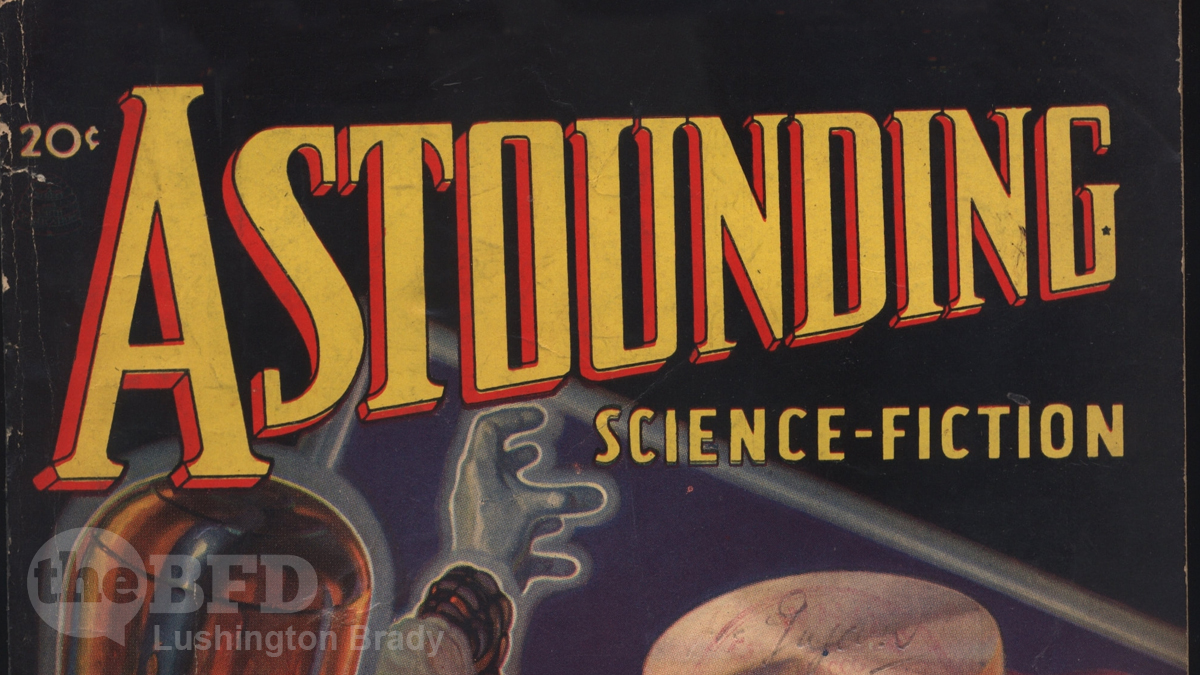The Times has published a list of the “Ten Best Sci-Fi” films, on the occasion of the release of the new Dune movie.
As with most such “list” articles, it seems more designed to generate clicks and comments than seriously critique a genre. After all, who could take seriously a list that omits either Blade Runner film, but includes twee candy-floss like ET the Extra-Terrestrial, kiddy popcorn-sellers like Star Wars (a film I love, by the way), or even pretentious camp like Logan’s Run?
Even its premise — the release of a new Dune movie — is questionable. Despite reading Dune and its sequels several times, I find it difficult to discern why they are so religiously regarded within the genre. They’re good enough, I guess, and Frank Herbert had at least some interesting things to say (which mostly seem to soar over the heads of his fans), but I could think of dozens of better books.
As for the film adaptations… I have a soft spot for the hokey weirdness of David Lynch’s version, and I hold high hopes for Denis Villeneuve’s film (the man hasn’t made a bad movie yet).
But hey, if The Times can run click-baity listicles, so can I. So, here’s my purely subjective list of what I Just Reckon are the ten best SF films. I’ve had to omit many great films, from A Boy and His Dog to its post-apocalypse grandson, Mad Max: Fury Road. The ranking order isn’t strict, especially the Top Five, which would all finish first in a dead heat, frankly.
10. Earth vs. The Flying Saucers
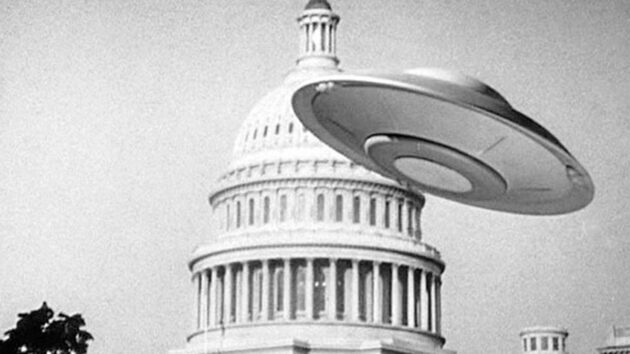
Sure, it’s pretty hokey by modern standards, but this is an absolute classic of the genre. Frankly, it leaves glitzier, flashier modern copies like Independence Day in its wake. The story is subtly sophisticated for what might otherwise be dismissed as 50s popcorn fodder: aliens attempt to come in peace, but are met with human violence: human ingenuity – and guns – eventually triumph. The real stars of this film, of course, are Ray Harryhausen’s impressive special effects.
9. Planet of the Apes
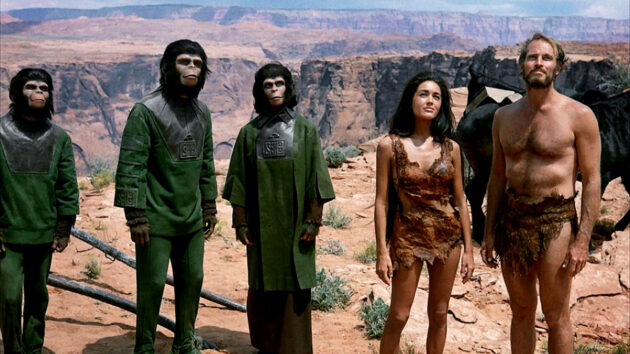
This film probably suffers from the fact that its twist ending has become a meme in itself. But when it first came out (or when it was first shown on TV, in pre-internet-spoiler days), the final, iconic shot of a ruined Statue of Liberty – revealing the truth about the titular planet – was a genuine, jaw-dropping gut-punch. Still, aside from a hokey scene of ape student-protesters, the film has otherwise dated well, even the ape makeup. The film perfectly balances challenging sociological comment with drama and action. It’s a measure of its strength that it spawned a five-film original franchise, a TV series, a terrible Tim Burton remake, and a worthy modern reboot trilogy.
8. Ex Machina
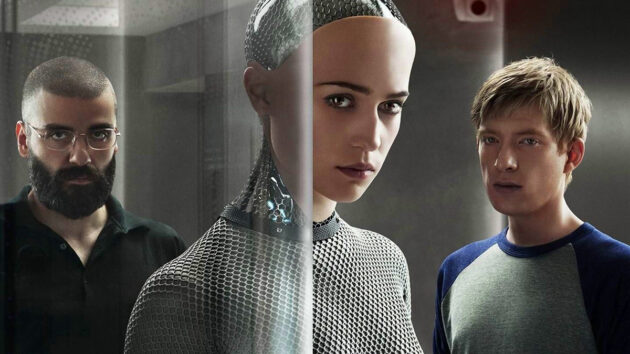
Alex Garland, who revived the zombie genre with 28 Days Later, and turned to dazzling, comic-book-violent in Dredd, turns in a much quieter, small-scale and thought-provoking effort with Ex Machina. The cast is whittled down to just three people: an everyday shmo, a reclusive billionaire, and a beautiful robot. The film combines elements of Metropolis, 2001, and Total Recall in a quietly engaging philosophical reflection on mind, consciousness and identity.
7. Alien
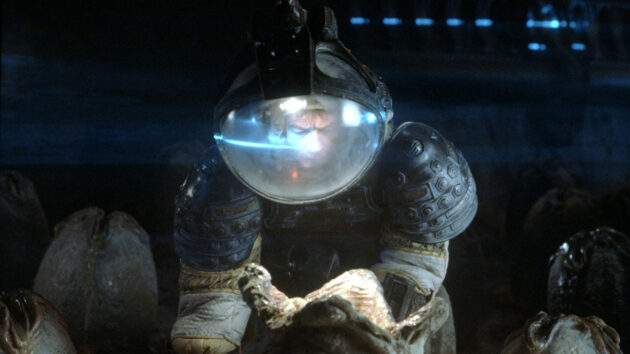
Essentially a haunted house horror movie in space, Alien weaves a top cast, taut direction, and astonishing visuals into a nightmare classic. Its claustrophic and paranoid atmosphere remains as gripping today as it was 40 years ago. H R Geiger’s and Ron Cobb’s set designs remain light-years ahead of most modern films, and Ridley Scott shows woke film-makers how to really create a strong female character. But its greatest strength is its pitting of a full-realised cast of distinct human characters against a coldly implacable predator.
6. Total Recall
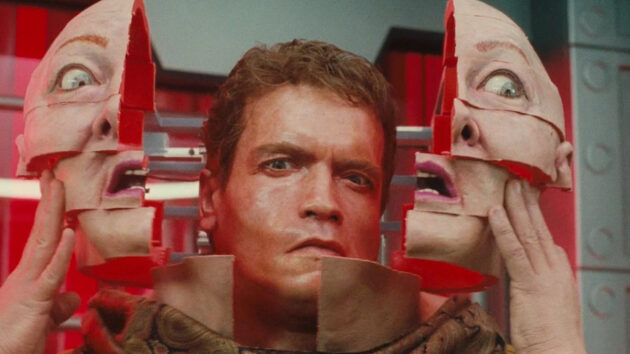
Philosopher Mark Rowlands rightly calls Paul Verhoeven’s 1990 masterpiece “one of the most philosophical movies of all time”. It’s easy to miss in all the explosions, muscles, jaw-dropping visuals and triple-titty Martians, but underlying the flash-and-bang is a dizzying exploration of mind, self and identity. Still not fully resolved is its biggest question of all: Was it all a dream, or is it all real?
5. Forbidden Planet
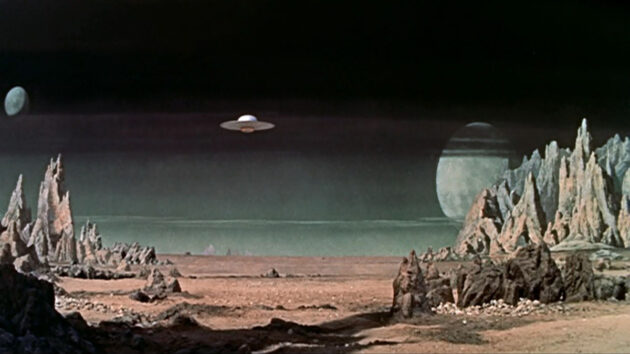
One of the best of the 50s Golden Age of SF movies. Forbidden Planet combines a literate script, great performances and still-dazzling visuals into a futuristic adaptation of Shakespeare’s The Tempest. From the opening shot (a stunning visualisation of a planet from orbit, at a time when humans were yet to launch even the first satellite) to the bleak ending, the slow pace never stops the film from being engaging. Some of the social roles are dated by today’s standards, but the theme – the monsters lurking inside us – remains thought-provoking as ever. Plus, there’s that amazing Moog synthesiser soundtrack.
4. The Thing
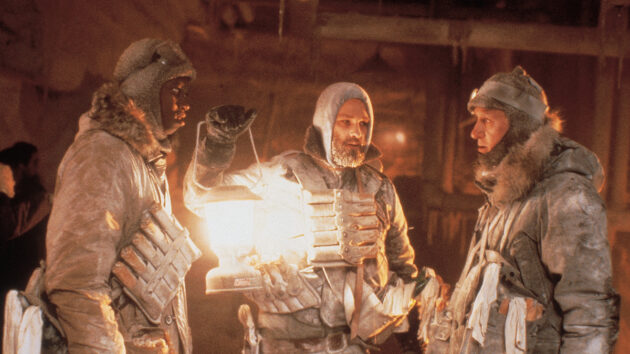
Arguably a horror movie first and foremost, perhaps, but The Thing has a distinguished SF pedigree: first a novella (Who Goes There?) by Astounding Science Fiction editor and SF giant John W. Campbell, then a 50s film by Howard Hawks. In what is arguably his best film, John Carpenter’s film makes Alien look like a light-hearted romp. Rob Bottin’s special effects are still stunningly horrifying today: dogs mutate into slimy, bloody, three-headed monsters, stomachs turn into gaping, fanged maws and heads sprout legs and scuttle away. As one of the characters says: “You gotta be fucking kidding”. But, once again, it’s a brilliant cast, led by Kurt Russell, that makes the film gut-wrenchingly real. Its bleak ending is one of the most nihilistic in cinema.
3. The Fifth Element
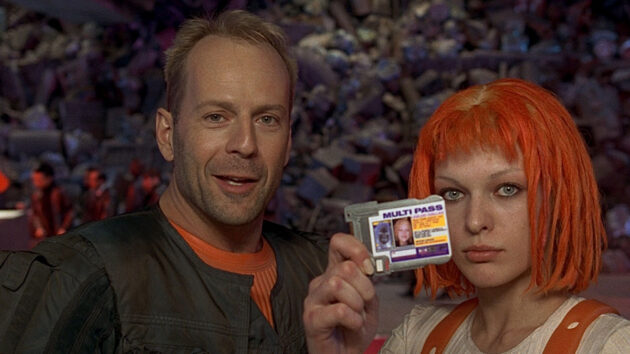
Quite simply, one of the most visually stunning pieces of space opera ever put to film. Ignore the plot holes and just strap in for the big, bright, loud, garish roller-coaster ride. This is a film which divides critics and audiences alike. Whether you love or hate it seems to depend on whether you find Chris Tucker’s “Ruby Rhod” gratingly annoying or hilariously annoying. But it’s worth watching for the “Diva scene” alone: quite simply one of the most jaw-dropping fusions of music, visuals, action, sound and choreography put to film. The simple fact that Bruce Willis actually seems to give a damn rather than just dialling in a pay-cheque is proof enough of how great this movie really is.
2. Blade Runner 2049
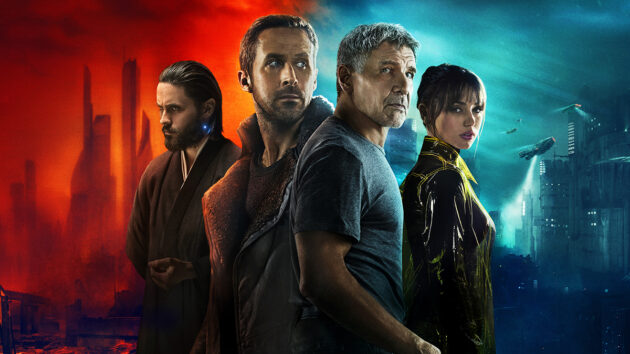
Probably my most controversial choice, here: putting Denis Villeneuve’s sequel ahead of Ridley Scott’s classic original is a bold call, for sure. So, let it stand in for both films. Blade Runner should be top ten in any list of films, but 2049, for my money, just squeaks ahead of it, and carefully walks the thin line between homage and copying. Again, Harrison Ford’s obvious commitment, rather than just coasting through on auto-pilot, is sign enough of the film’s stature. Ryan Gosling delivers a deadpan, yet subtly moving performance as K, the replicant blade-runner, but everyone, from Jared Leto, to Ana de Armas and Sylvia Hoeks, turns in a bravura performance. The pace is slow, but never less than enthralling. A visually-stunning film that never loses sight of its core theme: what does it mean, to be a “person”?
1. 2001: A Space Odyssey
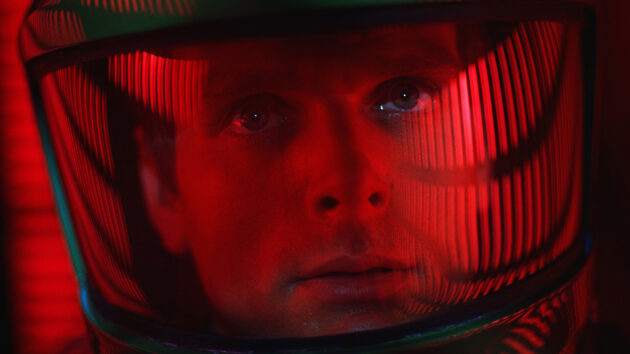
What more needs to be said? Simply one of the greatest movies, in any genre, ever made. With the combined talents of Stanley Kubrick and Arthur C. Clarke, of course, what should we expect. Some of the scenes may be dated – the “stargate” sequence, for instance, overplays its trippiness for a modern audience – but others, such as the airlock explosion, have never been bettered by any amount of computer trickery. Clarke called it “the first $10 million dollar religious film”: Kubrick delivers a remarkable paean to humanity and our place in the universe.
Please share this article so that others can discover The BFD

